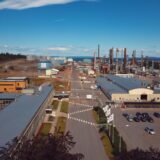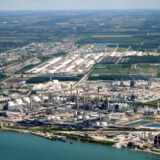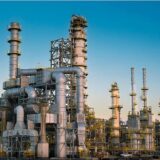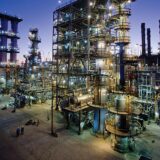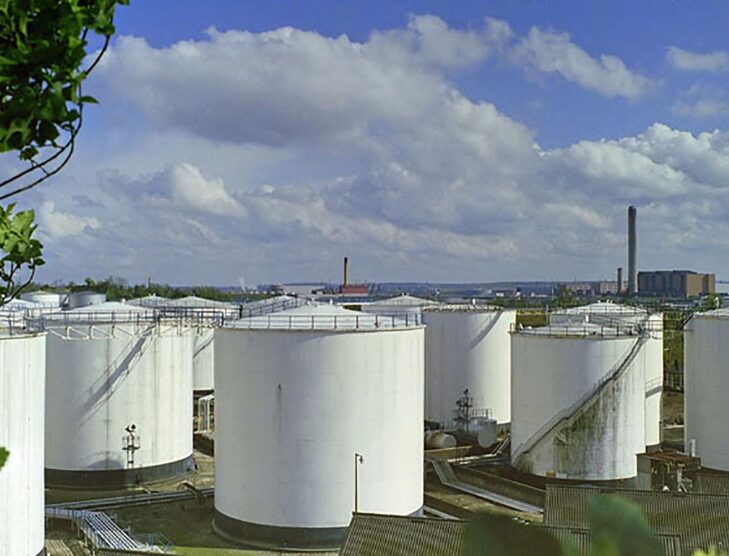
Mobil expands storage to enhance Australia’s fuel security
Mobil Oil Australia, a subsidiary of ExxonMobil Australia, is making a significant investment in its Melbourne terminal to enhance Australia’s fuel security. This move, which includes the addition of new fuel storage infrastructure, reinforces Mobil’s role as a key fuel supplier for Victoria and the east coast.
Andrew McNaught, Mobil’s Australian sales manager, emphasised the company’s commitment. “Our ongoing investments are focused on strengthening the Australian fuel supply chain. We aim to ensure the safe and reliable delivery of fuel to meet our customers’ needs. Since 2022, we’ve been working on reinstating several tanks at our Melbourne terminal, aiming to provide almost 250 million litres of additional fuel storage by mid-2025.”
This expansion at the Melbourne terminal is set to improve the efficiency and security of Mobil’s supply chain in Victoria. “Enhancing our Melbourne terminal’s storage capacity is crucial for the consistent supply of high-quality Mobil fuels. It also plays a vital role in supporting Australia’s fuel security objectives,” McNaught said.
Mobil is a major fuel supplier in Australia, catering to commercial customers, wholesalers, and retailers, including partnerships with companies like 7-Eleven Australia. As the operator of Melbourne’s largest fuel import and distribution terminal, Mobil holds a unique position. It is the only supplier capable of bringing fuel into both Sydney and Melbourne using Long Range 2 vessels.
Long Range 2 (LR2) vessels are a class of tanker ships primarily used for transporting refined petroleum products and, occasionally, crude oil. LR2 tankers typically have a deadweight tonnage (DWT) ranging from 80,000 to 120,000 DWT. These vessels play a significant role in global trade, facilitating the transportation of large quantities of petroleum products across long distances. They are commonly used in international shipping routes.
“With a capacity of up to 130 million litres, a single Long Range Vessel can carry enough fuel to fill nearly half of the cars in Victoria,” McNaughtsaid. “Utilizing Long Range Vessels greatly enhances the efficiency of our fuel import activities. Regular deliveries from larger, fuller ships are key to bolstering Australia’s fuel security.”
Mobil closed down the Altona Refinery in Melbourne in August 2021. This closure followed ExxonMobil’s announcement in February 2021 that the refinery would be closed and converted into a fuel import terminal. The decision to shut down the refinery was a significant event in the Australian oil industry, marking the end of a long history of fuel production at this site.
The Altona Refinery was originally built and owned by the Standard Vacuum Oil Company, also known as Stanvac. The refinery’s construction began in the late 1940s, and it was officially opened in 1949.
Following the merger of Exxon and Mobil in 1999, the refinery became part of ExxonMobil, one of the world’s largest publicly traded oil and gas companies.
The Altona Refinery played a significant role in the development of Australia’s petroleum industry, providing a range of oil products for the domestic market. Its history reflects the broader trends and changes in the global oil industry over the past several decades.
When the Altona Refinery in Melbourne was shut down in 2021, its capacity was approximately 90,000 barrels per day. The decision to close the refinery was driven by several factors, but primarily its size, age and the cost of operating in Australia contributed to its lack of competitiveness compared to larger and more modern refineries in Asia, such as those located in Singapore and South Korea.
ExxonMobil, the parent company, made a strategic decision to convert the site into an import terminal. This move was part of a broader trend in the oil industry, where companies have been shifting from refining to importing fuels due to changing market dynamics and the increasing focus on renewable energy sources.
.jpg)




